
|
Publications John Violanti Ph.D. Articles
Alcohol Abuse in Policing - Prevention Strategies
Homicide-Suicide in Police Families: Aggression full circle In Valor there is Hope: Reflections on the Wall Shift-work and suicide ideation among police officers - abstract Stress: A Police Health Problem Suicide in Police Work: Exploring Potential Contributing Influences The Mystery Within: Understanding Police Suicide
Books
We propose with this new book to develop a viable resource to explore interactive issues of trauma over the entire police career course. The book will draw upon empirical research to provide an evidence-based approach to traumatic stress risk management. We will start with police officer pre-employment experiences and conclude with a discussion of the implications of disengagement or retirement from the police role. We feel that this book is unique in two ways. First, the majority of volumes on police psychological issues do not differentiate with regard to career stage. Secondly, very few books reflect complex patterns of interaction between vulnerability and resilience characteristics that occur at individual, team, group and organizational levels, as well as involving interaction between these levels. This book will be one of the first to pull these various threads together and provide a comprehensive account of the impact of trauma throughout the police career. This work will provide a framework that police agencies can use to develop their officers and their organizations in ways that enhance their capability to confront an increasingly uncertain future. It will also be useful as a teaching tool for police officers, mental health professionals, and supportive organizations.
'The Psychology of Human Performance: International and Law Enforcement Perspectives' by Bartone, P.T., Johnsen, B.H., Eid, J., Violanti, J.M., & Laberg, J.C.
"Police Suicide: Tactics for Prevention" by Dell P. Hackett and John M. Violanti
|
|
Toolkit |
|
Speakers Bureau |
|
Training Events |
|
Resources
- Crisis Intervention |
|
Need Help Now? |
|
Contact Us
3200 34th Street South |
|
About Us |
All Rights Reserved, St. Petersburg College
Equal Opportunity Employer |
Privacy Policy |
Site Disclaimer
Problems with this site, contact grantswebmaster@spcollege.edu.
This project was supported by Grant No. 2011-DP-BX-K053 awarded by the Bureau of Justice Assistance to St. Petersburg College’s FL Regional Community Policing Institute.
The Bureau of Justice Assistance is a component of the Office of Justice Programs, which also includes the Bureau
of Justice Statistics, the National Institute of Justice, the Office of Juvenile Justice and Delinquency Prevention,
the SMART Office, and the Office for Victims of Crime. Points of view or opinions in this document are those
of the author and do not represent the official position or policies of the United States Department of Justice.
 |
|
 |
 |
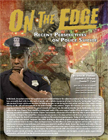
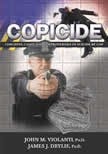
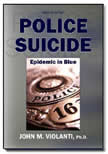
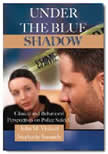 John Violanti and
John Violanti and 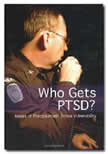
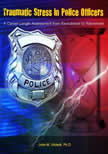 '
From Recruit
to Retirement: A Career-Length Assessment of Posttraumatic Stress in Police Officers'
by Charles C. Thomas. Paton. D., Violanti, J.M., Burke, K., & Gerhke, A. (book is in press)
'
From Recruit
to Retirement: A Career-Length Assessment of Posttraumatic Stress in Police Officers'
by Charles C. Thomas. Paton. D., Violanti, J.M., Burke, K., & Gerhke, A. (book is in press)